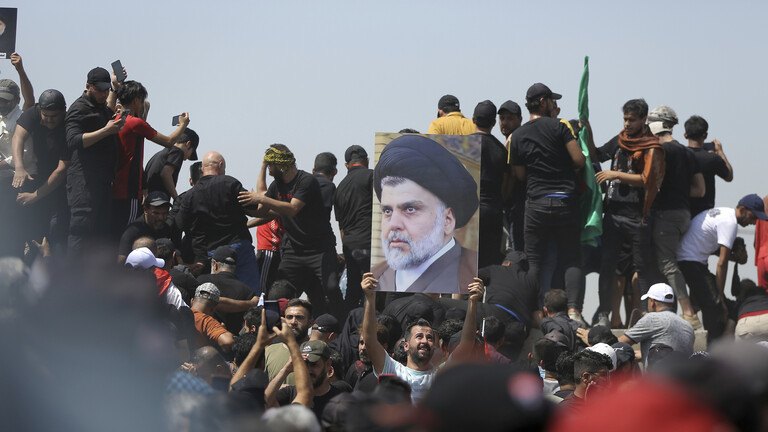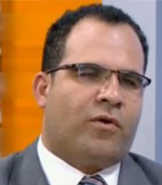The political landscape in Iraq is characterized by a significant impasse, precipitated by the inability of political factions to reach a consensus on the appointments of the President and Prime Minister following the October 2021 elections. After a brief period of stability with the selection of Muhammad al-Halbousi as the Parliament’s head, the political milieu shifted towards a renewed crisis in the selection of the Prime Minister. This situation has been exacerbated by the purported disclosures from Nouri al-Maliki, the leader of the State of Law coalition, which have elicited adverse reactions from the Iraqi intelligentsia at large, and the Sadrist movement specifically. These developments have served to widen the fissure within the already polarized Shiite faction, particularly between the Sadrist movement and the opposition.
Erosion of rules
Despite the diminishing crisis surrounding the presidential position and the escalating governmental predicament, the Iraqi crisis, intensified by the political upheaval and the re-emergence of public involvement post the October 2019 revolution, appears to be more profound than merely a political impasse, as suggested by Iraqi politicians and observers. The situation indicates a deterioration of the governing system’s fundamental rules and mechanisms, embodied by the three presidencies. Elections have evolved beyond being the sole mechanism for power formation, transitioning into a process of public opinion polling or referendum, serving as a procedural process. The recent electoral results, which closely mirrored those of the preceding election, serve as a testament to this observation. This occurred despite the intervening occurrence of a so-called “popular revolution”, which ostensibly aimed to instigate a shift in the established political paradigm.
The spectrum of demands, oscillating between political pragmatism and ambition, is delineated by two distinct approaches to the degradation of power formation system rules: the political deadlock approach and the radical solution approach. The Sadrist movement’s political rhetoric epitomizes the latter, an approach leaning towards idealism, and is echoed by a significant portion of the political elite. However, the movement’s stipulations for extricating from the prevailing stalemate align with the former approach, favoring realism. This was conspicuously manifested in the Friday sermon (August 6), where Muhannad al-Moussawi, Al-Sadrists delegate, advocated for the dissolution of Parliament and the instigation of early elections. Concurrently, he launched a vehement critique against his adversaries and rivals, denouncing the political class as “corrupt” and responsible for the country’s impoverishment, and accusing it of being “foreign workers.”
In the discourse of Sadrist, as perceived by analysts, there exists a dual-pronged objective. The primary objective is to sustain the momentum of public mobilization within the ambit of the movement, particularly after the call for continuous sit-ins outside the Parliament headquarters, rather than within. The secondary objective is to convey a message to the supporters of Nouri al-Maliki within the opposition that they have successfully navigated through the crisis of leaks, and have persevered in the political process, irrespective of the implications of these leaks on them, akin to al-Sadr. Consequently, it is inferred that they prioritize specific interests over the collective welfare.
Regardless of the escalation in Sadrist’s rhetoric, the Shiite parties agree on “dialogue” as a mechanism to get out of the current impasse. Although Al-Sadr’s speech itself contained a clear indication that dialogue would not lead to results, he reaffirmed his demands as a condition for dialogue. On the other hand, the rest of the opposition factions have accepted dialogue as the main mechanism to reach a deal, and authorized Hadi al-Amiri, the leader of the Fatah Movement, to engage in dialogue with the leader of the Sadrist movement, Muqtada al-Sadr, but not based on the present preconditions. Politicians and observers affiliated with the opposition considered that the opposition’s proposal to name Shia al-Sudani as prime minister as a step towards a political settlement, a step that fell short of resolving the crisis on the part of Al-Sadr. Potentially the sole excuse of Alsudani being a front for Nouri al-Maliki was an argument that was confirmed after the opposition refused to back down from that step.
The complex situation hinders progress, raising questions about initiating dialogue and accepting Al-Sadr’s conditions. Legal barriers exist, including the Supreme Court’s fatwa to dismiss the caretaker government and debate over changing the High Elections Commission. Article 64 of the Constitution offers an alternative: dissolving Parliament with an absolute majority. Parliament Speaker Muhammad Al-Halbousi supports this, despite instability due to Al-Sadr’s deputies’ resignations and the consequent uncertain parliamentary composition.
Different options
The involvement of global actors in the dialogue signals an emerging proposition by the proclamation of Rahim Al-Aboudi, a representative of the General Authority of the Al-Hikma Movement. Jeanine-Plasschaert, the Special Envoy of the United Nations Secretary-General in Iraq, has proposed an initiative to conduct a dialogue conference under international supervision. Al-Aboudi further suggested that the impending visit of Al-Amiri to Al-Sadr is contingent on the outcomes of the Plasschaert meeting, its initiative, and the response of the coordination opposition. This situation introduces an additional query, beyond identifying the dialogue’s start, which is to understand how it will be conducted.
International mediation signifies the globalization of discourse, a step that the opposition is unlikely to embrace due to several factors. The most prominent reason is the perception that the crisis is an internal matter within the Shiite community, and its externalization could potentially fracture Shiite unity. Another consideration is the potential broadening of the dialogue agenda beyond the confines of the prime ministerial crisis. It is also important to note that the emergence of Plasschaert as a significant actor within the Shiite context could signify the unsuccessful endeavor of the Iranian Revolutionary Guard’s “Quds Force” commander, Ismail Qaani. This failure could reflect negatively on the traditional player, Iran, which is striving to mend divisions among Shiite factions that are presumably affiliated with Tehran in some capacity.
The dialogue initiative proposed by Prime Minister Mustafa Al-Kadhimi, signifying a discourse under state auspices, remains ambiguous. The situation was further complicated by Al-Sadr’s demands, issued a day after Al-Kadhimi’s invitation, showed reluctance between a Shiite-Shiite dialogue and a United Nations-mediated dialogue. Ultimately, the direction of these discussions will be influenced by the outcomes of the impending meeting between Al-Amiri and Al-Sadr. It is important to consider that the results may not be apparent following the initial meeting, as they will be subject to further deliberation within the opposition prior to Al-Amiri’s engagement with Al-Sadr. Currently all factors suggest a likelihood of a Shiite-Shiite dialogue.
Opposing Factors and Outcomes
Al-Sadr is strategically leveraging his base, constituents, and supportive factions within the Green Zone outside the parliament as a mechanism of influence over the opposition. Similarly, the opposition is expecting that Al-Sadr may reconsider and modify his political stance, thereby exhibiting flexibility that could facilitate a resolution to the deadlock by accommodating certain demands, particularly the reconsideration of the appointment of Alsudany. An alternative course for the dialogue entails Tehran’s re-entry into the discourse to manage the crisis by convening the Shiite factions for dialogue in Tehran, or by extending an invitation to Al-Sadr to visit Iran, as has occurred in the past, to mitigate the tension among the Shiite political factions at large, or by employing the tactical option to navigate a way out of the crisis by invoking Article 64 of the Constitution to dissolve the Parliament.
Key variable
Ultimately, it is plausible that the intensifying impasse in Iraq’s political landscape could be susceptible to conventional strategies. These strategies entail the parties engaging in dialogue as a means to resolve the crisis, aiming for a mutually beneficial agreement that includes all stakeholders, such as the public and the Parliament. Alternatively, they may lean towards another typical scenario: the perpetuation of the political crisis without resorting to conflict, as long as the escalation redirects the trajectory back towards the initial scenario of dialogue for crisis containment. Nonetheless, an unforeseen circumstance could be the eruption of conflict amongst the Shiite factions amidst the prevailing crisis, a prospect that appears improbable given Iran’s influential role. However, the possibility of renewed public unrest persists, Al-Sadr has successfully garnered the support of a significant portion of the populace, positioning his movement as the driving force behind the unrest. The endurance of the public should not be overestimated, as their mobilization has previously transformed a seemingly stagnant situation, this could be the catalyst to instigate a shift in the current impasse.


